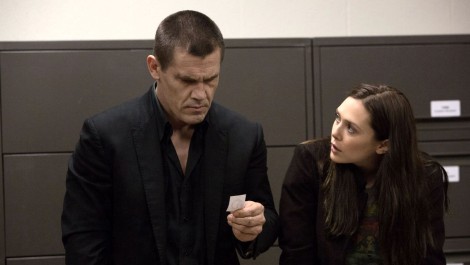Why you can trust GamesRadar+
Though he’s been as prolific as ever over the last seven years (from Katrina and Michael Jackson docs to 2012 religious drama Red Hook Summer ), Oldboy marks Spike Lee’s first UK cinema release since 2006’s Inside Man .
Sadly, this remake of Park Chan-wook’s revered revenger isn’t the comeback fans might’ve hoped for. If Oldboy 2.0 teaches us anything, it’s that hyper-stylised violence doesn’t come as naturally to the Brooklynite as his South Korean counterpart.
Where Park brought a deranged glee to the hammer blows and head shots, Lee’s take is notably grimmer. What’s more, there’s little in the way of outlandishness to offset the brutality. Never willing to follow its predecessor into the realms of delirium, this Oldboy becomes an onerous slog, only slightly enlivened by its twist ending.
Less sympathetic than the original’s Choi Min-sik, the anti-hero at the dark heart of Lee’s film is an alcoholic scoundrel named Joe Doucett (an exceedingly sullen Josh Brolin). Awakening from his latest bender, he finds himself trapped in a squalid room that will become his prison for the next 20 years.
Spending these decades sculpting himself into a blunt force weapon and spoiling for a fight, he goes gunning for his tormentors the moment he’s unexpectedly released. The only problem? He hasn’t a clue who they are or why they locked him away.
After striking up an unlikely alliance-with-benefits with a medical worker (Elizabeth Olsen), Joe crosses paths and then swords with baddies played by a mohawked Samuel L. Jackson and scenery-devouring Sharlto Copley, who seem to think they’re auditioning for The Spirit 2 and a Phantom Of The Paradise revival respectively.
While their over-the-top performances are problematic in their own right, they also illustrate just how low Lee has set said ‘top’ for his film, leaving it stiflingly contained when it should be unhinged.
Naturally, Lee and DOP Sean Bobbitt take a shot at recreating Park’s celebrated single-shot hallway fight, in which our protagonist takes out a legion of thugs through sheer badassery. In a lone instance of one-upmanship, Lee’s version takes the melee to another level (which is to say, a second storey)
But where such dazzle was the norm in the earlier film, it’s an isolated incident here, as conspicuous as an exit wound.



